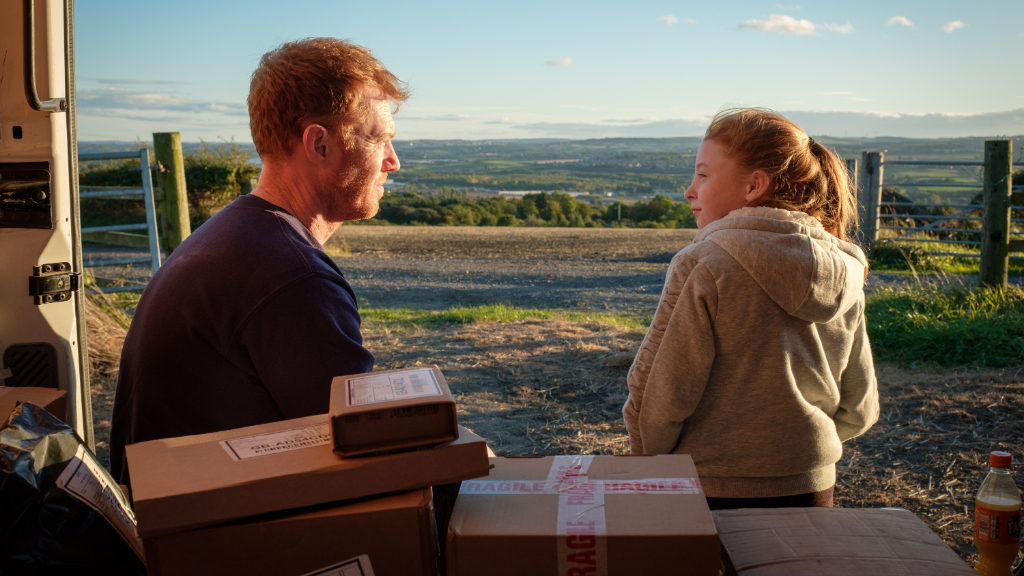Sorry We Missed You

“I’ve got to go to work!” There are few insincere sentiments in Sorry We Missed You. Each line is a lesson. Good will towards this film rests on one’s inclination to digest art in the form of social policy. Director Ken Loach returns with his usual mixture of heavy didacticism and working class nostalgia, targeting the zero-hours gig economy that devalues hard graft and an honest wage.
This is more of the same from Loach and longtime collaborator and scriptwriter Paul Laverty. Low-income families face up to – and are ground down by – the forces of late capitalism. Ricky (Kris Hitchen) and his wife Abby (Debbie Honeywood) are both bound up in precarious employment, he as a self-employed delivery driver, she as a home visit carer. Their two school-age kids, Seb (Rhys Stone) and Liza Jane (Katie Proctor), are smart but vulnerable to tensions within the family, to the rising fear of debt, stasis and decline.
Laverty’s dialogue skewers the language of new work practices. Kris is no longer an employee but an “onboarder”; he delivers “precisors” rather than products. Disingenuous targets and arcane regulations inhibit his supposed flexibility and freedom. Abby has “clients” and needs to perform “tuck-ins”, euphemisms for basic duties of care and reciprocation. The weight of woe may appeal to Cannes jury President Alejandro González Iñárritu, the repetitious suffering equivalent to The Revenant.
The extent of interviews and research are again clear, but whether this amounts to truth value is moot. Proposed social realism has an artificial edge. The real is made unreal. When characters become vessels for state-of-the-nation polemics, it detracts from both the political message and the art object. Even the jokey banter possesses an eerie unfamiliarity. A postgraduate thesis could be written on the overwrought football patter in Loach’s work.
Extended aesthetic analysis is possibly redundant. Robbie Ryan’s simple compositions allow family and work disputes to simmer and boil, while the politics behind these feelings are foregrounded, immediate. To criticise Loach for being on the nose is a reductive exercise and perhaps misses the point. He directs naturalistic performances that offer levity to a regularly leaden screenplay.
Despite moments of overreach, Loach has a way of cleaving through debate and posturing. His last film, I, Daniel Blake, won the Palme and spoke to the political moment in Britain, one of reduced benefits, labyrinthine bureaucracies and multiplying food banks. By returning to Newcastle, we reproduce a robust sense of locale, a world that is not simply hermetic but illustrative. After all, the type of economy brought to light is necessarily global.
The same qualms about pointedness will be directed here, while the depressing determinism of the narrative resists different shadings, ambiguities and complexities. But there are moments that generate intense force, that are fiercely emotive just short of parody. You’d have a heart of stone not to cry, even if you later laugh to yourself.
Joseph Owen
Sorry We Missed You is released nationwide on 1st November 2019.
Read more reviews from our Cannes Film Festival 2019 coverage here.
For further information about the event visit the Cannes Film Festival website here.
Watch some clips from Sorry We Missed You here:
























Facebook
Twitter
Instagram
YouTube
RSS